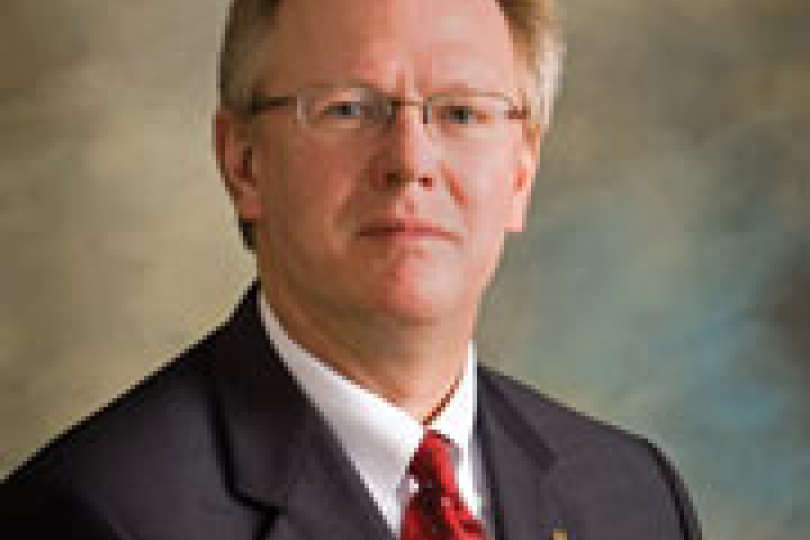Green Movement guides energy policy-making
OBAMA’S CLIMATE CHANGE legacy will be the subject of debate long after he leaves office in January 2017. But for those working in the U.S. fossil fuel industry, the verdict is already in. His legacy is one of shattered communities, shuttered power plants, shutdown coal mines — and lost blue collar jobs numbering in the tens of thousands.
The president gave lip service to an “all of the above” energy policy in his first term in office, but it later became clear that environmental groups guided his policy decisions on climate change and held an inside track with the Environmental Protection Agency.
Obama’s policies may have appeased environmental groups to some degree, but those policies have come at a terrible cost to the middle-class workers who mine coal and build, maintain and operate the coal-fired power fleet.In the arena of political influence, the well-heeled Green Movement has taken precedence over those who labor for a living. We had expected better treatment from the head of the Democratic Party and someone who, as a presidential candidate, was considered “of the people.”
One-dimensional thinking won’t solve climate change
UNFORTUNATELY, OBAMA TOOK a one-dimensional, linear approach to problem solving: If burning coal releases CO2, and those emissions contribute to climate change, then burning coal in the United States must be stopped, and renewables must take coal’s place.
There are several obvious problems with this thinking.
First, unilaterally upending the U.S. energy industry has far-reaching economic consequences to the energy companies and the people employed by them, including what to do with the enormous investment already in place for power plants built, maintained and upgraded over scores of years.
OBAMA’S POLICIES MAY HAVE APPEASED ENVIRONMENTAL GROUPS TO SOME DEGREE, BUT THOSE POLICIES HAVE COME AT A TERRIBLE COST TO THE MIDDLE-CLASS WORKERS WHO MINE COAL AND BUILD, MAINTAIN AND OPERATE THE COAL-FIRED POWER FLEET.
Second, the cost of transforming the energy sector from fossil fuel to renewables raises the price of energy for consumers and risks making U.S. industries less competitive with nations not bound by Obama’s energy policies.
Third, and most important, shutting down U.S. coal-fired plants and coal mines will have almost zero impact on the climate. Even officials in Obama’s own administration do not deny this fact.
In testimony before the House Science Committee in July 2015, EPA Administrator Gina McCarthy did not object to the assertion that the Clean Power Plan would have virtually no measurable impact on global warming. Instead, she opined, “The value of this rule is not measured in that way. It is measured in showing strong domestic action which can actually trigger global action...”
On May 26 of this year, former Obama Assistant Secretary for Fossil Fuel Energy Charles McConnell testified before the House Science Committee that the Clean Power Plan would slow the global temperature rise by a mere 0.01 degree F by 2050 and reduce sea level rise by less than the thickness of two human hairs.
He said, “The Clean Power Plan has been falsely sold as impactful environmental regulation when it is really an attempt by our primary federal environmental regulator [Gina McCarthy] to take over state and federal regulation of energy. Consider that all of the U.S. annual emissions in 2025 will be offset by three weeks of Chinese emissions.”
He added that the Clean Power Plan will cause “double-digit electricity price increases in over half of our states,” when both generation and “hidden costs” are taken into account.
More than 1,000 coal plants are planned worldwide
A FUNDAMENTAL FLAW in Obama’s climate change policy is a belief that the world will follow the example — and the enormous sacrifice — of the United States and simply do away with coal-fired energy generation. That notion is naïve.
Since 2011, China has constructed 300 large-scale coal-fired plants, and it has approved the construction of 150 more. Globally, more than 1,000 coal-fired plants are being planned.
According to the International Energy Agency’s World Energy Outlook 2015, 1.2 billion people lack access to electricity, mainly in Asia and Africa. Many of these people have no efficient way of warming or cooling their homes or even cooking safely or irrigating their crops.
Nations lacking accessible electricity for their citizens understand that to pull their people out of poverty and to develop their economies, they will need cheap, affordable, and abundant energy, and many are turning to coal. No amount of public posturing will change that reality. That is why the world needs a solution that includes the continued use of coal for the foreseeable future — with the technology to capture, use and store CO2.
CCUS, other innovation is missing from the equation
IN MY VIEW, Obama missed an opportunity to lead a global effort to address climate change in a meaningful way through carbon capture, use and storage (CCUS) technologies. These technologies could be advanced at a much more rapid pace than they now are, with global leadership and a major investment in research and development.
CCUS is showing great promise at SaskPower’s Boundary Dam coal-fired plant in Saskatchewan, a project our Canadian Boilermakers helped construct. That project included the advantage of nearby oil fields where injecting CO2 to recover hard-to-reach oil helps offset the parasitic energy cost of the technology. If we can come this far, we surely can make this technology feasible for sites that lack proximity to depleted oil fields and reduce the cost of capturing CO2 from the exhaust streams of power plants.
There are many other promising approaches to using captured CO2, for example, in the manufacture of products such as baking soda, plastics, carpets, furniture, cement and concrete. The success of these technologies could rapidly lower greenhouse gas emissions and extend the use of coal-fired generation systems well into the future.To really address climate change, we will need strong leadership that unites nations in a coalition focused on workable CCUS technologies that will ultimately be shared with all countries. That is the only way to control human-caused greenhouse gas emissions that will not bankrupt economies and destroy good middle class jobs.
We cannot endorse a candidate who follows Obama’s wrong-headed climate doctrine
LOOKING AHEAD TO the November presidential elections, the Boilermakers have deep concerns about the Democratic candidates’ positions on climate change. Both Hillary Clinton and Bernie Sanders have indicated they will continue Obama’s destructive energy policies and perhaps take them to new levels.
We have withheld an endorsement because we as a union — and our nation as a whole — cannot sustain the continued dismantling of the fossil fuel industry.
What we seek is a leader with the vision to bring a real solution to the problem of carbon emissions throughout the world, because it doesn’t matter what the United States does to reduce emissions if the developing world continues to emit at levels that eclipse any reductions we make.
Climate change is not solely the fault of coal mining and coal-fired energy generation. And the application of carbon capture, use and storage is not solely for the benefit of coal-fired plants. We will need CCUS to capture carbon from natural gas generating plants, steel mills, aluminum smelters, cement plants, refineries and other industrial facilities. And technologies will be needed to capture carbon from auto engines, jet engines, ship turbines and other CO2 sources.
To date, we have not seen the kind of rational, forward-looking leadership and policies that would truly solve the climate change problem.
Obama missed an opportunity to leave behind a bold and enlightened climate change legacy. Instead, he has put a bandage on the problem and unleashed a regulatory regime that is doing far more harm than good.
This is the wrong path for America and the world and a legacy he may eventually come to regret.






